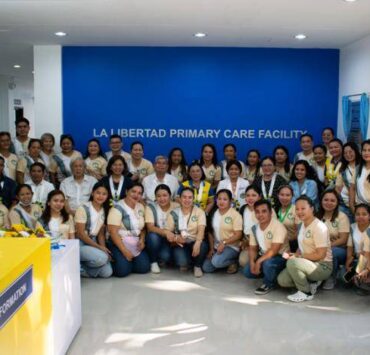Can LGUs really deliver in a devolved system?

Five years after the enactment of the Universal Health Care (UHC) Law, stories of local government units (LGUs) lacking the capacity to deliver basic health services are still painfully familiar.
The promise of UHC is a noble one: that every Filipino, regardless of where they live or how much they earn, should have access to essential health services without suffering financial hardship.
But since its passage, the question remains—can our local governments actually deliver? This is not the question about intent—it’s about delivery.
The 2022 implementation of the Mandanas-Garcia ruling intensified this question.
By giving local government units (LGUs) a bigger share of national taxes, it effectively completed the long-overdue process of devolution as primarily envisioned in the Local Government Code of 1991.
Theoretically, this should empower LGUs to provide better services, especially in health. But in practice, the picture is more complicated.
Unavailable services
In many rural health units and barangay centers, the most basic services are unavailable. Essential medicines are frequently out of stock. Many facilities are understaffed or lack licensed physicians and specialists. Some can’t even conduct basic diagnostics. These are not isolated cases—they reflect the state of devolved health care across the country.
The irony? More money is flowing into LGU coffers than ever before. But the capacity to manage and spend those funds wisely remains uneven and, in some cases, dangerously low when it comes to health care.
This may be attributed to a lack of specific legislation mandating LGUs to allocate or reserve a portion of their budget for health programs.
As questions mount about how LGUs can effectively deliver health services under a devolved setup, some efforts are quietly taking shape to help make sense of the numbers—and the gaps behind them.
Health budgets
One such initiative, recently formalized by the Unilab Foundation through the Unilab Center for Health Policy (UCHP) and Ateneo de Manila University’s School of Government (ASoG), focuses on understanding how health budgets at the local level are managed and how they might be improved.
The hope is that, through this effort, both local and national leaders can be better guided in making the promise of UHC more tangible where it matters most.
UCHP and ASoG are no strangers to system change. UCHP has already produced in-depth analyses on the rollout of key UHC reforms—such as PhilHealth’s Konsulta program and payment mechanisms for health-care providers, while ASoG has built a legacy of training public servants in ethical, evidence-based governance.
But this partnership does something different: it zooms in on the local fiscal muscle that powers public health systems.
As UCHP program director Ruben John Basa noted: “The UHC Law is a very complicated law, and a lot needs to be discussed. This is where we want to contribute—to research and demonstrate how this can be implemented, one LGU at a time. Local governments have many lessons to offer; there are many working models, and these are some of the things we would like to document.”
Budget season
This couldn’t come at a more critical time. Fresh from the local elections, many newly elected officials are still finding their footing. At the same time, budget season is approaching—the moment when plans are translated into pesos and centavos.
The window to act is narrow. If health is not prioritized now, it risks being buried under layers of bureaucracy and misaligned spending.
If we want to take UHC seriously, we must confront the infrastructure that supports—or undermines—local health delivery.
That means tracking where the money goes. That means asking hard questions about whether LGUs are hiring the health workers they need, equipping facilities adequately, and following through on service delivery promises.
However, meaningful devolution also would require national agencies to step up, not to recentralize, but to enable local governments through guidance, training, and enforcement of reasonable standards.
The UCHP-Ateneo study promises to do just that: unpack the mechanics of local health budgeting, expose inefficiencies, and help design fiscal models that reflect both need and capacity.
But we can’t just wait for the final report to act. Even as the research is underway, the message to LGUs should already be clear: your increased share of the budget pie comes with increased responsibility. If we don’t fix the basics—health workers, medicines, operational budgets—no law, however well-crafted, can deliver results.





















